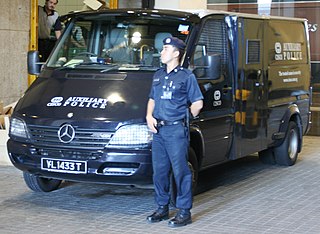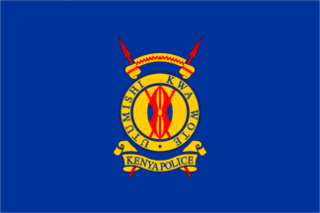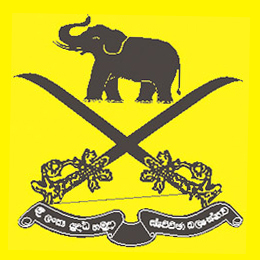A constable is a person holding a particular office, most commonly in criminal law enforcement. The office of constable can vary significantly in different jurisdictions. A constable is commonly the rank of an officer within the police. Other people may be granted powers of a constable without holding this title.

Auxiliary police, also called special police, are usually the part-time reserves of a regular police force. They may be armed or unarmed. They may be unpaid volunteers or paid members of the police service with which they are affiliated. The police powers auxiliary units may exercise vary from agency to agency; some have no or limited authority, while others may be accorded full police powers.
Assistant superintendent, or assistant superintendent of police (ASP), is a rank that was used by police forces in the British Empire and is still used in many police forces in the Commonwealth. It was usually the lowest rank that could be held by a European officer, most of whom joined the police at this rank. In the 20th century, it was in many territories opened to non-Europeans as well.
The Hong Kong Auxiliary Police Force was established in 1914 as the Police Reserve unit, which provides additional manpower to the Hong Kong Police Force, especially during emergencies and other incidents.

The West Bengal Police is one of the two police forces of the Indian state of West Bengal.

The Royal Cayman Islands Police Service (RCIPS) is the standing police force of the British Overseas Territory of the Cayman Islands. The police force was formed in 1907 and currently (2009) stands at 343 enlisted officers, with 64 civilians.

The Kenya Police Service is a national body in charge of law enforcement in Kenya. It is subordinate to National Police Service which is headed by Inspector General of Police who exercises independent command over the Service. Kenya Police is headed by Deputy Inspector General. Kenya Police is divided into Service Headquarters in Nairobi, Formations, General Duty Commands and Training Institutions.

The Ghana Police Service is the main law enforcement agency in Ghana. It is organized at national level and has a unitary command under the Inspector General of Police (IGP). Although there are many regional and divisional commands, they all report to the National Headquarters in Accra.

The Sri Lanka Army Volunteer Force (SLAVF) is the active-duty volunteer reserve force of the Sri Lanka Army. The SLAVF is separate from the Regular Force which consists of personal who are professional soldiers and its Regular Reserve, which comprises personal who have a mobilization obligation following their service in the regular army. The SLAVF consists of the volunteer force and the volunteer reserve; administration and recruitment of reserve personal is carried out by the Volunteer Force Headquarters in Shalawa, Kosgama which is headed by the Commandant of the Volunteer Force. It has a current strength of about 55,000 personnel.
The Inspector General of Police (IGP) is the professional head of the Sri Lanka Police. They are the most senior police officer in Sri Lanka and oversees all police personnel throughout the country. The IGP reports to the Minister of Law and Order, when the Police Service is under the Ministry of Law and Order as it is currently.

The Sri Lanka Police is the civilian national police force of the Democratic Socialist Republic of Sri Lanka. The police force is responsible for enforcing criminal and traffic law, enhancing public safety, maintaining order and keeping the peace throughout Sri Lanka. The police force consists of 43 Territorial Divisions, 67 Functional Divisions, 432 Police Stations with more than 84,000 people. The professional head of the police is the Inspector General of Police who reports to the Minister of Law and Order as well as the National Police Commission. The current Inspector General of Police is C.D. Wickramaratna.
The 1962 Ceylonese coup d'état attempt was a failed military coup d'état planned in Ceylon. A group of Christian officers in the military and police planned to topple the government of Prime Minister Sirima Bandaranaike during the night of 27 January 1962. Organised by Colonel F. C. de Saram, Colonel Maurice De Mel,, Rear Admiral Royce de Mel, C.C. Dissanayake, Sydney de Zoysa and Douglas Liyanage, it was to take place in the night of 27 January 1962, but was called off as the government gained information in the afternoon and initiated arrests of the suspected coup leaders before the coup was carried out.
A Deputy Inspector General of Police is a high-ranking official position in Police in Bangladesh, India, Kenya, Malaysia, Nepal, Pakistan, Nigeria and Sri Lanka.

The Bangladesh Police of the People's Republic of Bangladesh is a law enforcement agency, operating under the Ministry of Home Affairs. It plays a crucial role in maintaining peace, and enforcement of law and order within Bangladesh. Though the police are primarily concerned with the maintenance of law and order and security of persons and property of individuals, they also play a big role in the criminal justice system. Bangladesh police played an important role during the Bangladesh's liberation war.
The Northern Rhodesia Police was the police force of the British-ruled protectorate of Northern Rhodesia.
A special constable or special police constable is generally an auxiliary or part-time law enforcement officer.

The Andaman and Nicobar Police is the law enforcement agency for the union territory of Andaman and Nicobar Islands in India.
The 1915 Sinhalese-Muslim riots was a widespread and prolonged ethnic riot in the island of Ceylon between Sinhalese Buddhists and the Ceylon Moors. The riots were eventually suppressed by the British colonial authorities.
Nugagaha Kapalle Illangakoon was the 33rd Sri Lankan Inspector-General of Police, serving from 16 July 2011 to 11 April 2016. He also served as an advisor to the Ministry of Defence.








